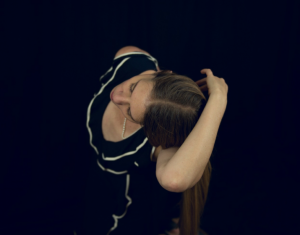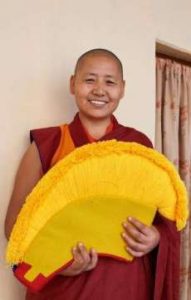
At 34, Fung Lam has achieved what no other Hong Kong-born composer has done. His music has a distinctive voice that is neither entirely Western nor Eastern. Yet his commissions range from the BBC Philharmonic and BBC Proms to the London Symphony Orchestra. It is a credit to British-based orchestral institutions that their open attitude accepted orchestral talent beyond Western countries. Initially, I assumed Lam was only in Hong Kong for his tenure as Composer-in-Residence with the Hong Kong Philharmonic (which was supported by the Robert H. N. Ho Family Foundation). His composition, the spiritually-themed Quintessence, is premièring on Friday the 13th, on the night of the Philharmonic’s 40th Anniversary Gala. I thought London was a natural choice to continue seeking creative opportunities.
I assumed incorrectly. He was planning to divide his time between Hong Kong and the British capital, and would therefore be coming back frequently. “Really?” I ask incredulously. The first time we met for an interview in 2012, we had a coffee in the Barbican Foodhall, an all-purpose diner nestled in only one of hundreds of historic, artistic centers in London. “We match and can even surpass London and New York in making money, but this – ” I gesture around the Starbucks of the Cultural Center in Tsim Sha Tsui, the only premier locale for music aside from City Hall, “ – can’t keep up with what they have.” The contrast is evident to any honest Hong Konger, even with the West Kowloon Cultural District beginning to take shape (and even he and I have our doubts about that). “I distinctly remember we spent most of our last meeting sharing concerns about Hong Kong’s impoverished culture,” I remind him.

“Indeed. Nevertheless, I see myself as a native Hong Konger,” he replies, shrugging. “Hong Kong’s artistic scene desperately needs innovation and development. I think I’m one of the people who can help. Besides, you and I have been spoiled by London and New York. Their cultural life spoils anyone who has the luck to experience it. The smaller cities in the UK and US probably suffer from the same problems as Hong Kong.”
What exactly is the problem with Hong Kong’s cultural life? “Our experience of orchestral music is unhealthily narrow, in contrast to the range of genres you can enjoy in London. Organizers are overly concerned with ticket sales, so they only go for the safe and sure revenue: get an international star or prodigy to perform something that everyone knows and likes, like Mozart or Wagner. And by the way,” he notes wryly, “I don’t find either Mozart or Wagner particularly thrilling overall. And no one should feel ashamed of not enjoying these hallowed names.” According to him, many of us do feel ashamed because appreciation of classical music has fossilized into a static, narrow appreciation of a select few names in the tradition.
“I’m confident very few in Hong Kong know about contemporary classical composers, which is very strange to me. Classical is seen as the pinnacle of musical artistry in Hong Kong, but we only enjoy and talk about the same composers from two hundred years ago. This is not progress. This is a self-fulfilling prophecy that leads to fossilization and conservatism.”
He qualifies that he understands the need for shows to generate money, but notes that an international name is all that is needed to sell out a concert. “I’m lucky: this time at the Phil’s anniversary concert, my name is alongside Boris Berezovsky. They should try doing the same for other composers. If you have a concert with a prestigious megastar like Lang Lang, you know it’s going to sell. Why not take a sensible risk and give a contemporary composer a chance to showcase his work alongside a star? We’re not defying the market; we’ll still keep the star glitter. I’ve seen occasions when audience members even preferred the odd one out to the traditional pieces.”
He believes a more liberal, adventurous approach to showcasing contemporary composters will further boost the chances of Hong Kong-born artists who want to do more than simply reinterpret the old works. “I’m very much aware I’m a special case. I don’t actually want to be. I’d love to continue getting good commissions, but the point is to open the minds of a mainstream audience. You can’t do that if there’s only one of you and people see your music as a curious alternative rather than a possible mainstream experience. As a Westernized Hong Konger, I have the same problem with traditional Chinese music. My works don’t fit well with songs like the Yellow River Piano Concerto (??e?????), and one day Chinese orchestras will face the same question as Western troupes in Hong Kong: do they want to ossify into a rigid canon, or do they want to truly innovate?”
I ask him whether he could make a bigger difference as an orchestral administrator. “Certainly. Honestly, I never really planned to become a prolific composer,” he clarifies, laughing. “I love creating, and that’s why I’ve remained on the cultural and artistic beat. Someday I hope to have an administrative post, but I’m not quite there yet. I came back to Hong Kong for a specific purpose. Now that Quintessence has premiered, I want to bring my brand of music to conventional audiences more, so they can judge my work in comparison to other pieces of the same genre, not in relation to a typical mainstream symphony. I don’t expect everyone to like what I write! But I want them to judge contemporary music on its own terms.”
What is striking about Lam’s thoughts is that they are not only compassionate, but also fair. They are impartial. “You know what I admire most about Buddhism?” he asks, trying to give me an illustration of his personal outlook. “Most of the other great religions are anthropocentric. They place humanity at the center of the universe. They imbue us with some grand meaning and narrative in some divinity’s plan. In Buddhism, our only advantage is that we’re smarter. We’re just another species of sentient being. I really look up to a teaching that preaches the impermanence of all things.”
Fung Lam is just one composer. He has enjoyed a unique professional life in many ways, but in coming back to Hong Kong to make his way as a free and independent artist, he has demonstrated that he strives unceasingly to live up to his philosophy. While he’s always on the lookout for the next commission, his dedication is not to himself, but the greater glory of his art and the artistic renaissance of his hometown.
Fung Lam’s tips for young composers
Master your craftsmanship. “My sympathies lie with young artists and composers, who all need opportunities to present their work. But we need to show the orchestral administrators what we’re worth. We can’t seek shortcuts. We need to hone our skills if we want to market our contemporary and lesser-known genres to mainstream audiences.”
Go out and see the world. “The world of Hong Kong is too small for an artist. If you have the means to do so, I urge any artist to go overseas at least once, no matter how short a period. Your world and artistic vision really will be broadened. I personally like Europe more than America because there are more symphonic cultures in short distances of each other. An intercontinental train will take you to different concert cultures in Paris, Berlin, Vienna, and beyond. America is huge and diverse, true, but in the end it’s still one country only.”
Be honest with your work. “Most people become an artist for the sake of art, not for personal gain or wealth. It’s a cliché, but absolutely true. Be an artist, not a careerist-in-art. If I were the latter I wouldn’t have composed the works I’ve done for the past decade. I’d just do a few Mozarts and Wagners, slap on a bit of ‘interpretation’, and play within the rules of conventional classical sales strategy. Would you really flourish as an artist?”
Be realistic. “You won’t get big commissions straight away. And when you’re bit more well-known, be a bit more selective – choose commissions on whether they can help you advance in the direction you want. Also, in this difficult world for artists, self-marketing is a must. Put yourself out there, or no one will see you.”Be prepared. “You don’t want to get a commission for a piece and have nothing to show for it. You’ve been waiting for that call or email all your life, and you don’t want to be caught unawares when someone actually asks the big request of you. Seize it with both hands – and hold on tight.”














